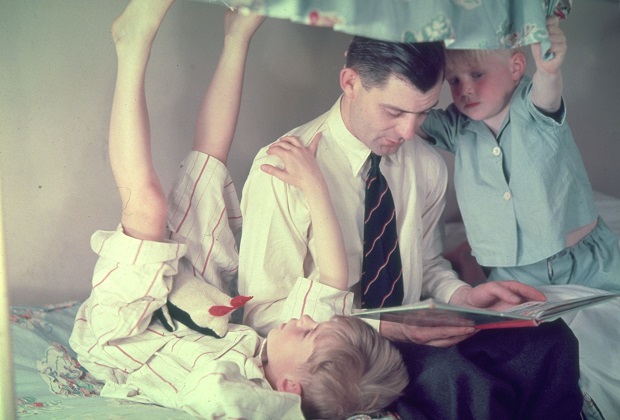Anyone who wonders why conservatism is such a lost cause in this country only needs to turn on children’s television to see what the voters of tomorrow are being taught.
I used to think that I was the only person who detected a liberal bias in children’s programmes, but if I am actually losing the plot, at least there are two of us. As Henry Jeffreys writes in this week’s magazine:
The purpose of children’s stories has always been to educate as well as entertain. I was brought up on the Railway Stories by Revd W. Awdry, which later became the TV series Thomas the Tank Engine. These stories have a strict moral code: when an engine misbehaves he is chastised and often punished by the Fat Controller. In a story that terrified me as a child, my namesake Henry the Green Engine refused to leave a tunnel because he didn’t want the rain to mark his new paint job. To teach him a lesson, the Fat Controller had him bricked up in the tunnel. The lesson was clear — don’t be vain about your shiny new paint job.
Compare this with a programme on CBeebies (the channel of choice for my daughter) called Mike the Knight. Mike is a knight in training and each episode consists of a ho-hum quest such as stopping the local Vikings stealing pies. He’s not a very like-able figure, Mike, arrogant and stupid, just the sort of character who might benefit from a bit of bricking up in a tunnel. Through over-confidence he initially fails in his quest and becomes disheartened. Rather than tell him where he’s going wrong, his companions — a couple of camp dragons and his sister — bolster his confidence and eventually, with a bit of luck and a lot of help from his friends, the quest is completed successfully. Everyone then tells Mike that he ‘has saved the day’.
Compare and contrast; the former lesson, although not necessarily political, naturally leads to a conservative outlook in life, that is that authority has a role in taming our inner child and turning us into mature adults responsible for their actions and its consequences. The latter contains the message that misbehavior is a product of unfortunate circumstances, in this case a lack of self-esteem, and it is one that naturally leads to a liberal outlook in life. Long before people are at the age when they gravitate towards a political philosophy these lessons will form their view of why things are as they are. If you exposed children exclusively to either of these two separate lessons they would likely grow up to have different views about how to run the departments for education and justice.
Children’s books are basically the same. I’m not a climate change sceptic but if I were, selecting a children’s book would be a nightmare, since half of them seem to have some environmental theme, with the poor animals endangered by evil humans (off the top of my head The Snail and the Whale).
Others contain the message that people can overcome stereotypes about gender roles (Zog); overcome their fear of the others because preconceived ideas about people are wrong (The Pirates Next Door); or that humans are bastards (The Hunter). There are plenty more.
Am I just turning into a colossal middle-aged bore? Possibly, but none of the older books we have, from the 50s and 60s, have these underlying messages; My Naughty Little Sister is naughty simply because she’s a bloody nuisance, which is what most people with a more sensible view of human nature at the time thought.
Is this because lefti-ish ideas are easier for children to understand, or is it because these are ideas that certain well-educated, arts-centred adults believe in? I recently found in my in-laws’ house a book from the early 1970s featuring some of the endearing things that children say about the world, and a lot of them could be slogans from the anti-austerity movement; lots of things about why the world isn’t fair because some people are rich, and why can’t people just get rid of all guns and why can’t they just give everyone in Africa enough money so no one starves. In real life you can’t simply magic away such problems and there is no happy ending, only a trade-off between different problems.
There’s nothing wrong with any of those books mentioned, of course – my kids love them – but I do wonder what goes into their head. I was reading Michael Morpurgo’s The Pied Piper of Hamelin the other week, in which the protagonist refuses a large sum for his services because, as he says, ‘when one man becomes rich ten are made poor’. I’m not an unswerving free-marketer and I doubt trickle-down theory, but that’s just plain untrue, as I told my children. They are five and three.
Boy, are they are going to hate me when they grow up.







Comments